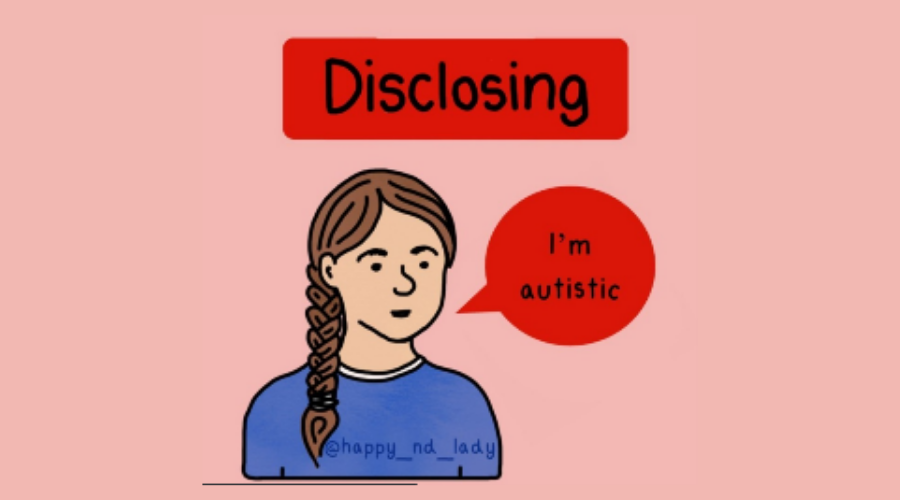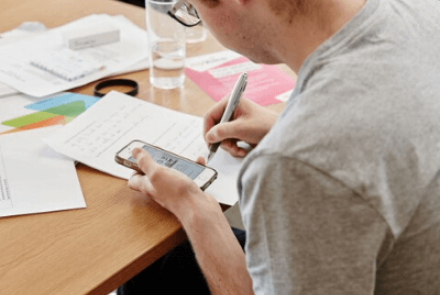Friends and family, I’m autistic!
Vera shares a short guide to disclosing you are autistic.
Being open and talking about being autistic was the best decision I ever made. It connected me with the #ActuallyAutistic community, professional support, and turns out lots of my friends are autistic but hadn’t told anybody!
However, it was also scary: I didn’t know how to do it and feared backlash. This is a list of things I have learnt:
1. You don’t have to say the word 'autistic'
Tell them what you need them to do – if something makes your life better then you don’t need a reason other than “it makes my life better”. If you do want to clarify and say you’re autistic then that’s fine, too.
2. Identify your fears about disclosing
I made a list of worst-case outcomes: being denied, invalidated, infantilised, labelled as something negative or just ignored. They rarely ever happened, and instead, I was met with support, acceptance, and a willingness to learn.
The few negative experiences I encountered arose because it was a foreign concept for the person (so could be resolved with further conversation), or they saw me embracing things they disliked about themselves… in which case I moved on with my life.
3. The 3 Rs: when it’s relevant, you’re ready, or you really want to
It is relevant when it is useful for the person to know (e.g. asking for adjustments to the physical environment, or during medical treatment).
It is okay to be ready to tell different people at different times! For example, I told a few close friends when I realised I was autistic, classmates when I was fortunate enough to receive a diagnosis, and a year later my parents. It depends on the level of information and reassurance they need.
I really want to say I’m autistic sometimes! It encourages others to be themselves, too.
4. How to do it
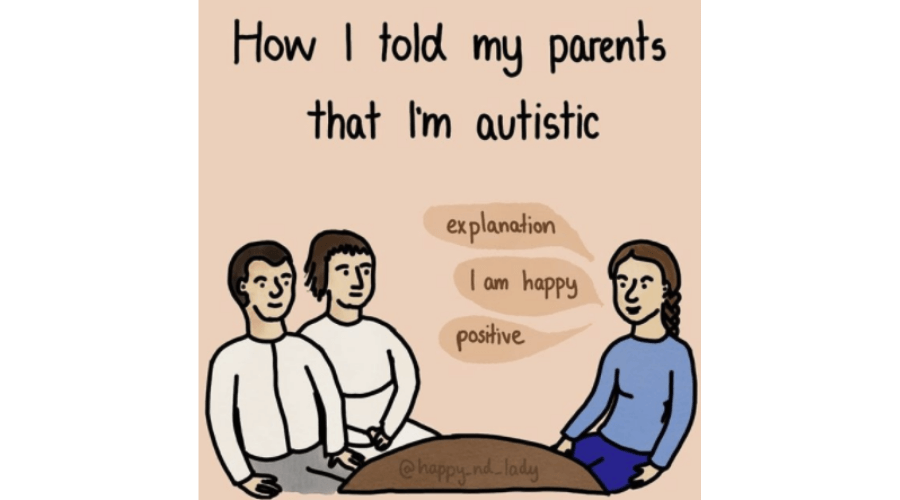
- Explain what autism is for you and that you haven’t changed as a person but understand yourself better now
- Your strengths
- Your challenges
- How they can support you
- If you feel like it, tackle some of the myths about autism
- Give space for questions.
I have included two of my infographics. The first is a poster called Autism spectrum and me:
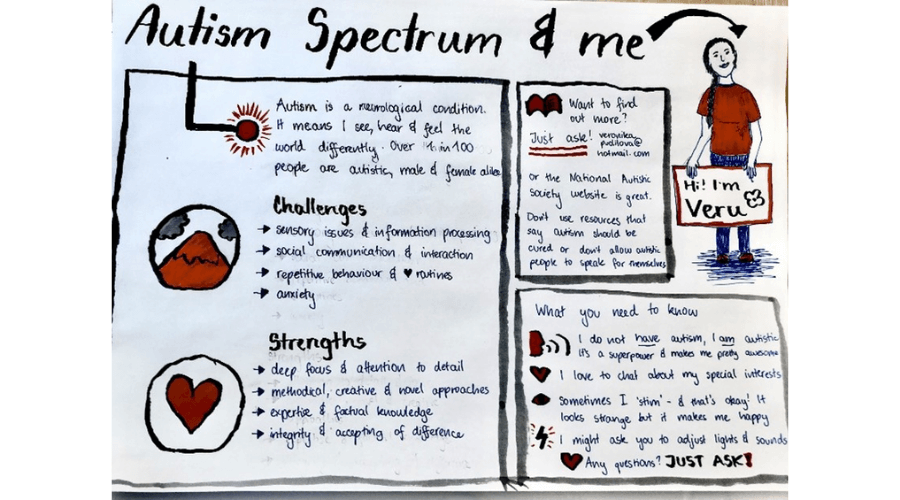
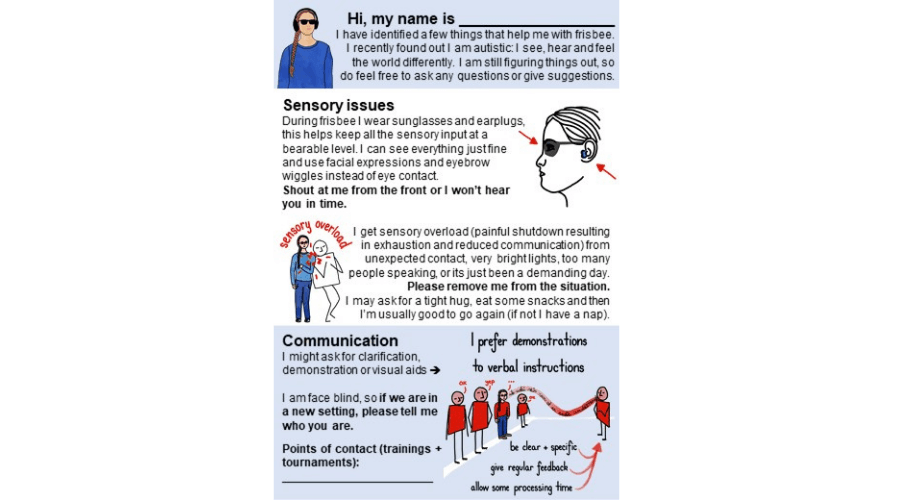
In conclusion
Be proud and always stand up for yourself. It takes a lot of energy, a bit of resilience and a strong sense of humour, but it is worth it.
About the author
Vera is a nature nerd and proudly autistic. When not doing her MSc in Geographical Information Sciences, she likes cuddling her dog, volunteering with the National Trust, and attending the Ambitious about Autism peer support sessions.

